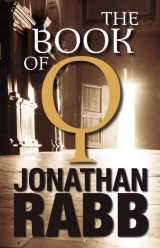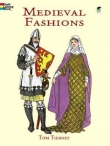
Текст книги "The Book of Q"
Автор книги: Jonathan Rabb
Жанр:
Триллеры
сообщить о нарушении
Текущая страница: 13 (всего у книги 28 страниц)
Everything would change now. He had been told as much. How, he didn’t know. Standing among his brothers, reciting the “Perfect Light,” it didn’t seem to matter.
Eeema, Eeema, Ayo.
The fruit was all but gone, the bowl of loukoumilicked clean. He’d been hungrier than he’d realized, the confection far better than he’d expected.
Waiting for the last of the paraffin lamps to flicker out, Pearse donned the robe and stepped out into the open-air corridor, a tree-lined atrium three stories below. The sleeves hung a bit too long, though an ideal spot, he discovered, to conceal the notes he had with him. Not that he was anticipating anything, but best to have the pages out of sight should someone appear. Looking to minimize that chance, he kept his lantern dark as he moved past the other cells, the monks either asleep or oblivious to his late-night wanderings.
With one hand flat against the wall, he inched his way back to the stairs, the moon having broken through, making all but the last few steps relatively painless. Once outside the dormitory walls, he found a darkened nook and fired up the lantern, careful to keep it low at his knees. No bonnet, no beard, but at least with the lantern shining out-and not up-he could see where he was going without casting any light on his upper body.
As quickly as he could, he began to retrace his steps through the various alleys and courtyards, one or two cats leaping out at inopportune moments to accelerate an already-lively heartbeat. But no monks. Even so, he found himself moving ever more stealthily, reduced to tiptoes for the last twenty yards or so, the area by the fountain far more exposed than he’d remembered.
Reaching the protective shadow of the great doors, he paused to reorient himself.
The collection of buildings he had seen earlier now appeared to meld into one another, a kind of flattened crescent, the moon offering just enough of a gloss to bring them into focus. Likewise, the water splashed in an ivory white, its lapping reflection trapped within the fountain walls, the area just beyond its reach somehow darker by contrast than the rest of the courtyard. Drawn in by the tranquillity of the scene, he began to feel far more attuned to the design of the monastery. Granted, he had only a small portion of it in front of him, but the discrepancies between Angeli’s map and the actual layout seemed to melt away, the spacing far less compact, readable, a growing sense that perhaps he might be able to locate the signposts specified in the scroll. Or maybe it was just faith. Or the fact that the mist had lifted. Either way, he retrieved the pages from his sleeve, glanced at the first few, and set off.
It was remarkable how much she had teased from the text, or rather, how much the Manichaeans had been able to hide within their prayer. Half the notes on Photinus detailed landmarks chosen for what was, no doubt, their staying power: bends in the outer wall, ancient pieces of stonework planted deep in the earth, rises and falls in terrain that no amount of building or digging could disrupt. Those things that they knew would endure.
And, of course, as Angeli had promised, the distances between them.
Following the line of the wall to his left, he counted off the prescribed thirty-five paces to an arched hollow directly across from a small olive orchard, just as the notes described. Truth to tell, it had been thirty-one, but given the likelihood that he was a good deal taller than his tenth-century counterpart, Pearse quickly reasoned away the disparity. With that in mind, he shortened his gait, and arrived at the next landmark with extraordinary precision-“time placed in stone”-the first of two sundials situated at opposite ends of a garden at the orchard’s center. Both sprouted an assortment of paths, only one of them leading up a short incline. It was the one he was meant to take, out beyond the orchard fence, past a natural spring, to the edge of the monastery’s outer wall.
It was there that he met his first setback. For several minutes, he couldn’t find a series of steps described as “notches in the great partition.” His hands traced the wall face as Pearse became more and more concerned that he was somehow overlooking something. Struggling with a thick matting of overgrown saplings, he finally unearthed the first step, then the second, the rest of them so cleverly imbedded in the wall that had he not known what he was looking for, he would have missed them entirely. Even as he climbed, he needed his hands to feel out each one in front of him, lantern light insufficient to the task. Halfway up, he slowly realized that if not for the steps, he would never have been able to find his way past a group of buildings-thirteenth– or fourteenth-century, by his estimation-situated along the wall. How the Manichaeans had known to avoid what must have been open land back in the tenth century was anybody’s guess. He continued to climb.
A gust of wind swept up as he reached the top of the wall, his hand quick to the stone face to steady himself. Momentarily staggered, he found it impossible not to stare out at the horizon, an explosion of stars so vast that he was forced to drop to one knee lest he lose himself over the edge. The Aegean swelled some three hundred feet below, its rhythm in strict counterpoint to the endless array of glitter quivering above. He tried to regain his feet, but his body refused, once again beguiled by the perfect synchrony of light and darkness. For all his doubts-his fears of a Manichaean ascetic-Pearse had, at least, come to appreciate its singular truth, palpable at a moment like this.
As close to heaven as they could get.
The echo of Angeli’s voice roused him from his meditation. He forced his eyes back to Photinus and spotted the second set of steps just on the other side of the buildings. His body low, he traversed the top of the wall, then made his way down.
A courtyard opened up at the base of the steps. Scampering across it, he came to a bridge no more than ten feet across, a tiny rill below-more rocks than water-its trickle heard, not seen. He checked the notes; there was no bridge mentioned. Evidently, this was a “recent” addition. Instructed to follow the water upstream, he placed his hand on the bridge’s stanchion and leapt down the five or so feet before making his way along the sod and mud, careful to keep his lamp high. The footing grew more and more tricky, slick rock causing him to keep one hand almost in the water so as to maintain his balance. Forty yards along, he pulled himself back up the bank.
What had appeared as a collision of trees and stonework from his cell window now opened up as the onetime heart of the monastery, the buildings retreating further and further into the past. And yet, the deeper in he moved, the more he sensed a loneliness from those he passed, too many of them abandoned, remnants from a time when Photinus had boasted five hundred monks within its walls. Now it held barely eighty, the rate of apostasy increasing with each year, the malady of “teddy-boyismos,” as Nikotheos had called it-the lure of Salonika-having grown to epidemic proportions. The old monks were dying off, the novices fleeing, leaving the buildings to stand empty and alone.
Pearse felt only token sympathy. The fewer monks around, the less likely he might run into one.
All such concerns quickly faded when, at the top of a steep rise, he came face-to-face with a double row of columns, the facade for a cloister peeking out through the gaps.
This time round, he needed no cats to set his heart racing.
“Twin rows of eight will guard the Vault.”
Somewhere within those walls waited the parchment.
Staring up at the building as a whole, he quickly understood why the Manichaeans had chosen it for their hiding place. He reckoned it stood almost at the center point of the three outer walls. More than that, it had been designed in such a way that, as far as he could tell, access to it was possible only from the route he had taken. The back and side walls seemed to grow out of the mountain, a half-chiseled sculpture tearing itself from the rock. Only the front colonnade was fully realized, the “twin rows” revealing an archway at the center. Pearse removed the last few sheets from his sleeve and started in.
Four portico walkways flanked a narrow quadrangle to form the interior, a courtyard of dusted earth and wild grass at its center. Unlike anything he had seen up to this point, the cloister clung to a late Roman past, a building that might very well have predated even the Manichaean presence at Photinus. Bringing his lantern to eye level-and relying on a suddenly lustrous moon-he followed the line of archways that extended to his left. The stone had softened over the centuries, but the rigid lines of each column could still be seen even in the half-light, the pedestals beneath linked in a continuous low wall. The arcade itself had not faired so well, the flagstones chipped and cracked, clumps of vegetation pushing their way through, odd mounds of dirt scattered throughout, the mark of animal scavenging. Every so often, a window or door would appear along the walled side of the arcade, the rooms within showing equal disrepair, some, though, with hints of long-faded mosaics-a partial crucifix here, the hand of the Virgin there-all shining back at him in the lantern light. From the varying sizes and shapes of the cells, it was clear that the place had once housed a virtually independent community within Photinus, far more than just the simple cloister it purported to be.
Further confirmation awaited him at the third corner of the quadrangle-access to a subterranean level, highly unusual for a cloister of its age. Nestled within a miniature rotunda, he found a set of circular steps leading down. Eighteen of them. The notes were, once again, right on the mark.
Trouble was, it was the last of the detailed entries. The final two “clues” were far more cryptic, abstract phrases, with no directions of any kind. Even on the bus, they had struck him as out of place. “Those who enter may see the light,” followed by the equally vague “The one unmoved takes wing.” He had recognized the first as a biblical passage, somewhere in Luke his best guess, but pinpointing the source had done little to explain its meaning. The second had baffled him altogether. He had hoped that by now something would have appeared to clarify at least one of them; otherwise, why make the map so specific, only to leave the most crucial bits indecipherable? He was faced with two possibilities: Either the Manichaeans had thought the phrases obvious enough on their own or they had decided to throw in one last bit of “hidden knowledge” to keep things interesting. A touch of the gnosis at the bitter end. Had he been a betting man, Pearse would have opted for the latter, which meant that if he was going to find the parchment, he had to start thinking like a Manichaean.
Reaching the bottom of the steps, he could make out little more than ten feet in either direction, the lantern light only sharpening the vacancy beyond. It was enough, though, to see that the lower level was a virtual carbon copy of the cloister above, save, of course, for the central courtyard, which here had become a mass of solid stone. A pair of corridors branched out from the corner stairwell, the first legs of the quadrangle disappearing into a dusted emptiness. Gone were the sounds of the night that had accompanied him thus far, the absolute quiet matched only by the unrelenting darkness.
Lamp at arm’s length, he started down the corridor to his left, his focus on the side walls, uneven rock chiseled from the mountain. From time to time, a rusted torch holder would appear, centuries beyond use, bits of stray iron hanging precariously from eroded pins. As to the cells, they came at regular intervals, six to eight paces between each, tiny hovels drawn of all air, dirt floors beneath. Surprisingly, several of them retained the faint aroma of burned leaves-why, he couldn’t explain-instant memories of long-ago bonfires quickly erased by the immediacy of the place. More difficult was determining what most of the rooms had been used for-storage, prayer, perhaps even ritual-bits of mosaics once again scattered throughout. He spent several minutes studying the tiles, hoping to find something that would invite him to “enter” and “see the light,” but there was nothing. Only a neat pattern of cells to bring him back to the stairwell, no farther along than when he had set off.
Undaunted, he retraced his steps. When he reached the stairs for a second time, he planted himself against the rock and closed his eyes. The need for a little guidance. Where would they have hidden it? The silence brought him back to the notes. It’s a game for them, he thought as he stared down at the pages. So how would they hide the “knowledge”?For want of anything better to do, he counted out the Syriac letters. Thirty-five. No luck there; the cells had stopped at twenty-two. Evidently, the Manichaeans hadn’t placed much stock in numerology. Look at the words. It has to be in the words. He continued to stare at the phrase. “Those who enter may see the light.” The light. He knew it was no metaphor for them, no spiritual allusion, but something tangible, real. Up to this point, he’d assumed “the light” had referred to the parchment. That was real. Enter and find it. Clearly, that wasn’t the case. So what down here contains the light?He began to wonder if he’d somehow missed a tray of melons along the way.
Frustration began to set in. He tilted his head back against the wall, eyes lost to the void in front of him. For nearly a minute, he stood there, thoughts of the notes slowly supplanted by an uneasy appreciation for the space around him-cold, slick walls, lifeless cells, all part of an ancient cavern left to its own decay, desolate in its entirety. What he had seen only moments before as a piece to the puzzle now took on a far more unsettling reality, one separated from any other living soul by a maze of alleys and walls and streams. Urged on by the profound isolation of the place, those images began to fly through his head in a dizzying array, so overwhelming that he began to lose all hope of retracing his steps. The pounding in his chest accelerated. Instinct snapped his head to the right, the lamp with it, a need to know that the other corridor remained empty. All that stared back was a swirl of dusty air clinging to the lantern light. Beyond it, pure darkness, childhood fears crowding in, lungs tightening, an overpowering desire for light, reallight, to relieve him of his self-conjured frenzy.
Fighting it, he suddenly experienced a moment of perfect clarity.
“Those who enter may see the light.” The light.
In that instant, he knew exactly what the phrase meant. The guidance he had sought. It didn’t refer to the parchment; it referred to light itself. Actuallight, to erase the darkness and dispel the fears. Light in its most tangible form, even for a Manichaean.
All he needed to do was find its source.
His heart slowed, the air once again breathable, the glint of possibility holding his panic at bay. Thinking back on the last fifteen minutes, he knew the source wasn’t in any of the cells; he’d searched them too well to have missed something that obvious.
Or had he? It suddenly struck him that perhaps the light he was looking for needed complete darkness to make itself known. Any sort of shading would only undermine a Manichaean design, light and darkness understood as polar absolutes. The lantern he had brought with him had marred that purity.
In an act of Manichaean faith, he opened the glass and blew out the flame.
It took him several minutes to accustom his eyes. Oddly enough, he began to feel a kind of comfort within the pitch-black, his body somehow less delimited, unobtrusive, more a part of the rock than an affront to it. No longer defined by the ring of light cast from his lamp, he could almost fade into the darkness, safe in its embrace-a growing respect for the Manichaeans’ subtle affinity for the two realms.
When the first hint of light did appear, he thought his eyes were playing tricks on him, not for the light itself, but for its location. Thin lines of white slowly formed along the ceilings of both corridors, threadlike streaks at perfect intervals, as if a hundred spiders had decided to weave one strand each of silk. Impossible to make out above the garish yellow of the lantern, they now glimmered pristine against a blackened backdrop. He moved out toward the first, brushing his fingers along the ceiling, the strip of light matching the topography of his hand. Cupping his fingers toward the side wall, he expected to catch the light in his palm. Instead, the beam disappeared. Only then did he see the light shining on his knuckles. Amazed, he turned toward the solid rock courtyard. The light was coming from in there.
At once, he began to trace his fingers along the topmost edge of the courtyard stone, only to find a pattern of tiny holes hidden within. Each time he covered one, another strand of web disappeared, reborn with the removal of his finger. He’d paid no attention to the giant hunk of rock situated at the center of the four corridors; now, he ignored all else. He lit the lantern and began to examine the fissured stone. Drawing up to within a few inches of the first hole, he discovered something far more provocative.
Etched into the wall was a disjointed collection of Greek letters, most of which lay hidden under a healthy layer of dust. Sweeping the grit away, he saw they combined to form a block of writing; on closer inspection, a verse from the Bible. Ephesians. The armor of God. Like the steps he had discovered in the monastery’s outer wall, the letters here had been carved with such ingenuity that they virtually blended into the contours of the rock. His adrenaline started to rise. A few feet down, another verse. This one Old Testament. So it went, around all four sides, no sign, however, of the simple invitation from Luke.
When he realized how stupid he had been, he nearly smacked himself on the head. Of course the verse from Luke wouldn’t simply be waiting for him. It, too, would be hidden in the text. Taking his lead from the “Perfect Light,” he scanned each of the verses again, this time searching for an acrostic. At the far end of the second wall, he came upon the letters hidden within a passage from Revelation, the irony not lost on him. Once more, he read the inscription from bottom to top:

He pulled back and surveyed the area around the verse. The rock face resembled a tiny mountain range, the cracks in the wall like rivers and streamlets crisscrossing its terrain. Lifting the lantern in a wide arc, he tried to locate some hint of a door in the fissures, but to no avail. No way through, no way over. A none-too-distant echo. With little else to go on, he ran his fingers along the lettering, unsure of what exactly it was he hoped to find. He took particular care with the word light, pressing against each of its letters as if one of them might miraculously propel him through the solid wall.
He wasn’t far off when, pushing at the last, he felt something give way, the miniature? burrowing deeper into the rock. A moment later, he heard the sound of releasing, an entire section of wall moving perhaps an inch backward, guided by some unseen hinge. Stepping back, he watched as a seemingly unconnected series of cracks-oddly etched beams-joined together to create the outline of a door. A remarkable piece of engineering. Muscling his shoulder into the rock, he pushed his way through.
The sudden spray of light from within-a milky white radiance far purer than anything he had expected-forced him to wince. It seemed to emanate from the walls, an undulating mass of flawlessly smooth stone. Directly in front of him, six steps led down to the floor, which reflected an equal luster, no less luminous than the arched ceiling above, the overall effect that of a cube of light dug deep into the rock. He made his way down, sliding his fingers along a nearby ridge of wall-cold, wet, tacky to the touch. It gave the impression of something primeval, as if it had been culled from the very soul of the mountain. Even when he noticed the real source of light-a group of torches placed at the far end of the sanctum-he continued to marvel at the stone’s effect. That the flames implied a recent visit from someone other than himself didn’t deter him. Instead, he concentrated on the torches, too dim to be producing the kind of light enveloping the space. Somehow, the walls, the floor, the ceiling were absorbing the torchlight and throwing it back with an added vibrancy.
Even from behind the six tapestries that hung along the four walls.
Putting the geological mystery to the side for the moment, Pearse drew up to the tapestry nearest him. Considerably faded-early medieval, his best guess-it appeared to depict the Ascension of Christ: a lamb asleep in the lower right-hand corner, angels flanking Him on both sides, more of the heavenly host above. Christ blessed them all as He rose, clouds parting before Him, His face and torso far rounder than one might have expected. More curious, He wore the robes of an Old Testament mystic, a book covered with astrological symbols clutched in His right hand.
At first, Pearse attributed the idiosyncrasies to a Byzantine style, but the longer he stared, the more he realized how much of the scene felt incongruous, the usual cast of characters somehow miscast-the Virgin Mother nowhere in sight, the apostles conspicuously absent. Even the way the light radiated from Christ seemed skewed.
It slowly dawned on him why. This was no Ascension, but a Heavenly Ascent. No Christ, but a Manichaean prophet. Enoch, as Pearse now recalled his Apocrypha. Who else would be holding the Book of Celestial Physics?He glanced around the chamber. Each of the tapestries wove a similar story of a Seth or an Enosh, the figures virtually indistinguishable from one another. Only one of them stood out-the largest, hung along the back wall, depicting a man twice the size of the rest. Miniature versions of the other prophets stood within his open palms, their tiny auras subsumed within his own brilliance.
Mani, the Paraclete, larger than life.
From his vaunted perch, the Great Prophet stared down on the chamber, gnosis issuing from his every pore in a stream of letters and symbols woven into the cloth, the focus of his attention a raised platform at the center of the room. His gaze seemed to indicate its special importance. Pearse followed Mani’s cue and moved toward it.
A series of wooden sculptures, each no more than two feet tall, surrounded the four sides of the pulpit-Byzantine figures carved in narrow ridges, maroon and aqua pigments peeling from their faces and hands. They looked like typical Eastern icons, eyes peering up at the tapestries, each of the little men in a classic pose of humble piety. And yet, there were subtle differences among them-a hand gesture, the tilt of a head-enough to draw Pearse closer. As he moved from one to the next, he realized how much they varied, each one with its own specific identifying mark: an olive branch clasped to the breast, a garland rung about a shaven head, a tiny book held in the right hand. A book?At once, he turned back to the tapestries, instantly aware of the connection. Each of the sculptures represented one of the figures on the walls. Like Saint Jerome with his lion, or Saint Catherine with her wheel, the Manichaean prophets defined themselves by their own artistic props.
But whereas six of them hung from above, the grouping around the platform numbered seven. Pearse quickly matched statues with tapestries, the odd one out all too obvious when he finally came to it. Its short hair and lack of a beard had confused him at first. Only when he looked more closely did he see the tiny indentations at the center of each palm. Jesus as prophet. Jesus as one more in a long line leading to Mani. Why He had been denied His Heavenly Ascent remained a mystery. Perhaps to confirm Mani’s elevated position. Pearse had no answer. What he did have, though, was far more exhilarating.
Compared to the others in the chamber, Jesus remained earthbound, static. Unmoved.
Pearse needed only to help him “take wing.”
He placed the lantern on the platform and knelt by the figure. Its robes draped to the ground, a hint of sandal peeking out, enough to reveal a rusted nail driven through the arch. At first, Pearse thought it was merely decorative, a symbol of Christ’s final agonies; bending closer in, he realized it was actually bolting the statue to the stone below. He glanced at the other figures; each was managing with a single brace attached to the platform behind. Jesus alone required a separate means of mooring.
Pearse dropped to his chest and began to examine the few inches between the back of the figure and the pulpit. This time, he could find no release mechanism. Pulling himself to his knees, he placed his hands around the statue’s waist and gently tried to lift it. The wood groaned from the mild exertion, the stone below shifting ever so slightly. A hint of movement. More than that, he watched as a powder puff of dust rose from behind the robes as he released, caught in an unseen stream of light. He inched over to the side and lifted again, this time his eyes fixed on the stone. There. A thin shadow along the back edge seemed to deepen as he pulled, another crack of light. The stone was rising. More dust as he let go. He tried it several times, but the bolt refused to give way, no more than half an inch before it locked the stone in place. He needed something to wedge into the gap, something to force the stone up from below.
He surveyed the chamber. Nothing but tapestries and statues stared back. He glanced over at the torches, each one firmly affixed to the wall by a web of ironwork, thick bands of metal impossible to dislodge.
So what about a rusted one?
Jumping to his feet, he grabbed the lantern and ran to the steps. Two minutes later, he was using the lamp’s base to hammer against an eroded pin hanging from one of the corridor walls. A long metal strip dangled at its side, both closer and closer to release with each strike. The sound jarred, its echo a dull thud within the wildly shadowed space, lantern light flying in every direction. With a sudden clang, both pieces fell to the floor. Pearse snatched them up. A minute later, he was maneuvering the long strip into the half-inch opening.
Again he tried to lift. And again the stone refused. He pressed his full weight onto the improvised lever-his arm and chest muscles straining at the effort-bringing the gap to nearly an inch before his body started to shake. With one last surge, he drove down onto the iron wedge, hoping to snap the stone from its bolt, but his knees began to slide out from under him, twisting him to the side. The lever shifted as well, forcing the stone away from him rather than up. To his complete amazement, both continued to move, the stone scraping a few inches across its neighbor before his arms finally gave out.
The bolt, he discovered, had been designed not to keep the statue in place but to act as its pivot. Reaching his fingers into the gap formed by the rotation, he shoved the stone farther, the sound of grinding slate on slate reverberating throughout the chamber. When he had opened up a wide-enough breach, he picked up the lantern and stared into the hollow.
A pit some two feet deep opened up below the statue, more of the luminous stone forming its walls. At its center sat a square metal box perhaps ten inches high, twice that in both length and width. He reached down and pulled it up. It was lighter than he expected. He set it atop the platform and stood, marveling at its simplicity.
A plain box, untouched for nearly a thousand years, more remarkable for what he knew to be inside.
It was almost too much to think of opening it, a kind of ecstatic wonder at the prospect. To this point, he’d been playing a game, prodded by a Manichaean dare, distracted by its ingenuity. Now, all the ciphers, the meanings within meanings, fell away. He stood alone, a single iron latch between himself and an unimagined reality. He didn’t think of Angeli’s warning, nor of his own desire for clarity. He felt only insignificance, the mountain before him again, a divinity he could revere but never fathom. Paralysis born of faith. He sat, light-headed, the shimmering whiteness of the chamber draining him still further.
He had no idea how long he had been sitting, staring, when a flicker of torchlight snapped him back into focus. He reached for the box, an instant of resolve enough to bring his hand to the latch. More a device to keep the agents of decay at arm’s length than to provide additional security, it easily gave way under a bit of pressure. Evidently, anyone who had gotten this far could be trusted with the contents. He lifted the lid, a strange odor wafting out, somehow familiar, though he couldn’t quite place it.
More unsettling, though, was what he saw. A small dome of glass rested on a swath of velvet, between them what looked to be a leather-bound codex, no bigger than the size of his hand. A waxlike substance coated the crease where glass met velvet-a sealant of some sort-further protection against the elements. Next to it lay a pile of gold coins, their presence equally jarring. But it was the dome itself that troubled him most, the glass far too pure to have come from the hand of a tenth-century artisan, its craftsmanship that of the fifteenth or sixteenth century. All sense of wonder quickly faded; he dislodged the glass from the strip and picked up the codex. Flipping it over several times, he realized it, too, belonged to a different age. In fact, it was no codex at all, but a prebound book, the style of binding mid-Renaissance, the texture of the paper-when he finally opened it-confirmation of the dating.








